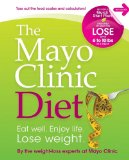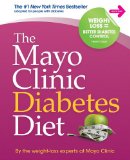Mayo-Diet
The Mayo-Diet was developed in the 50s. The Mayo-Diet recommends eating up to 25 eggs in one week.
Eggs, lean meat, salad and vegetables are all allowed. All visible fat and also cooking oil, butter or margarine spreads are forbidden. Important carbohydrate sources such as a potatoes, bread and rice are to be avoided on this diet .
This low calorie and protein rich diet is meant to facilitate a weight loss of 7kg in 2 weeks.
The Mayo-Diet Theory
The extreme intake of protein is meant to avoid any possible protein deficiency, which is apparently the cause to being overweight.
The body needs a lot of energy to convert protein into glucose (energy) and this is meant to facilitate weight loss. The high intake of protein is supposed to prohibit the body from decomposing too much muscle protein.
top 

The Mayo Clinic Diet: Eat Well, Enjoy Life, Lose Weight, Mayo Foundation for Medical Education and Research
|
Evaluation of the Mayo- Diet
- The Mayo Diet was not developed by the famous Mayo Clinic in the USA .
- The high levels of protein decrease the feeling of hunger.
- Too many eggs! Eating to many eggs increases the levels of cholesterol.
- Too monotonous! Such a monotonous diet can also lead to under nourishment.
- One does not replace bad eating habits with good ones.
- This diet is not recommended for health reasons! Too much protein and not enough carbohydrates strain the metabolism and are very unhealthy in the long run.
- The protein-decomposing products increase your chances in getting gout and kidney problems.
- The low intake of calories during the diet means rapid weight gain after the diet.
- Quick initial success.
top 

The Mayo Clinic Diabetes Diet,
Mayo Clinic
|

